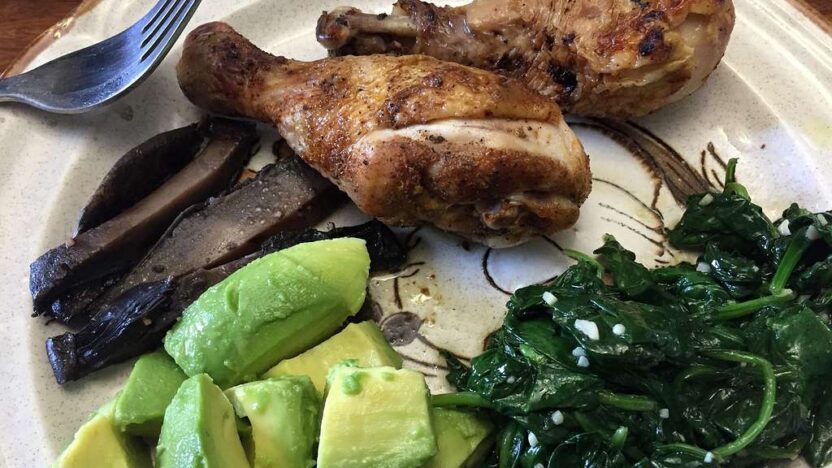The keto diet for epilepsy has been used as a treatment for nearly a century, providing relief for those with drug-resistant epilepsy. This high-fat, low-carbohydrate diet helps the brain use ketones as an energy source instead of glucose, leading to fewer seizures in many patients. Research has shown its effectiveness, particularly in children with epilepsy, and it continues to gain popularity as a natural treatment option. In this guide, we will explore the science behind the ketogenic diet, its benefits, risks, and practical tips for following it successfully.
Understanding the Keto Diet for Epilepsy
The ketogenic diet is a high-fat, low-carb diet that forces the body into ketosis, a metabolic state where fat is burned for fuel instead of carbohydrates. This process produces ketones, which act as an alternative energy source for the brain. Since epilepsy involves abnormal brain activity, ketones may help stabilize neural function and reduce seizures.
History of the Keto Diet in Epilepsy Treatment
The use of the ketogenic diet for epilepsy dates back to the 1920s when doctors discovered its potential to reduce seizures in patients who did not respond to medication. Over time, it became a preferred treatment for drug-resistant epilepsy, particularly in children. Even today, it remains an effective solution for many individuals struggling with seizure disorders.
How the Keto Diet Works for Epilepsy
The ketogenic diet affects epilepsy by altering brain metabolism and reducing excitatory neurotransmitter activity. Here’s how it works:
- Ketone Production: When carbohydrate intake is restricted, the liver produces ketones, which serve as an alternative energy source for the brain.
- Reduction in Excitatory Neurotransmitters: Research suggests that ketosis reduces glutamate activity, which is often associated with seizures.
- Increased GABA Levels: The diet increases gamma-aminobutyric acid (GABA), an inhibitory neurotransmitter that helps calm brain activity.
- Improved Mitochondrial Function: Studies show that ketones enhance mitochondrial efficiency, providing more stable energy for brain cells.
Benefits of the Keto Diet for Epilepsy
- Seizure Reduction: Clinical trials have shown that up to 50% of individuals on the ketogenic diet experience a significant reduction in seizures.
- Alternative to Medication: For patients with drug-resistant epilepsy, the keto diet offers a natural alternative to pharmaceuticals.
- Cognitive Benefits: Many people on the diet report improved focus, mental clarity, and mood stability.
- Weight Management: The diet may also help individuals maintain a healthy weight, which is beneficial for overall health.
- Anti-Inflammatory Effects: Ketosis has been linked to reduced inflammation, which may contribute to fewer seizure episodes.
Potential Risks and Side Effects
While the keto diet for epilepsy is highly effective, it comes with some potential risks:
- Nutrient Deficiencies: The restrictive nature of the diet can lead to vitamin and mineral deficiencies.
- Keto Flu: Some individuals experience fatigue, nausea, and headaches during the initial transition.
- Gastrointestinal Issues: Constipation and digestive discomfort are common side effects.
- Heart Health Concerns: High-fat consumption may increase cholesterol levels in some people.
To mitigate these risks, it is essential to follow the diet under medical supervision and ensure a well-balanced intake of nutrients.
Types of Ketogenic Diets for Epilepsy
There are different variations of the ketogenic diet that can be tailored to individual needs:
- Classic Ketogenic Diet: The traditional version with a 4:1 or 3:1 ratio of fats to proteins and carbohydrates.
- Modified Atkins Diet (MAD): A more flexible approach with slightly higher protein intake.
- Low Glycemic Index Treatment (LGIT): Focuses on low-GI foods while maintaining moderate ketosis.
- MCT Oil Diet: Uses medium-chain triglyceride (MCT) oil to induce ketosis while allowing more carbs.
How to Start the Keto Diet for Epilepsy
Starting a ketogenic diet requires careful planning and medical guidance. Here are some steps to follow:
- Consult a Neurologist or Dietitian: Professional guidance ensures the diet is safe and effective.
- Plan Your Meals: Focus on high-fat foods like avocados, nuts, olive oil, and fatty fish.
- Monitor Ketone Levels: Use blood or urine ketone tests to track ketosis.
- Stay Hydrated: Drink plenty of water and replenish electrolytes to avoid dehydration.
- Be Patient: It may take a few weeks to notice significant seizure reduction.
Sample Meal Plan for Epilepsy Patients
Breakfast:
Lunch:
- Grilled salmon with spinach salad and olive oil dressing
- Cheese and almond snack
Dinner:
- Chicken thighs with roasted Brussels sprouts and coconut oil
- Keto-friendly dessert with dark chocolate and nuts
For more keto meal ideas, visit Ketogenic Diet Resource.
Success Stories: Real-Life Experiences
Many individuals with epilepsy have successfully managed their condition with the ketogenic diet. One notable case is that of Charlie Abrahams, whose father founded the Charlie Foundation to promote ketogenic therapy after seeing dramatic improvements in his son’s epilepsy. Numerous other success stories highlight the diet’s ability to improve the quality of life for those with severe seizure disorders.
External Resources for Further Reading
Conclusion
The keto diet for epilepsy is a well-researched and effective dietary approach to managing seizures, especially in cases of drug-resistant epilepsy. By following a structured ketogenic diet under medical supervision, many individuals can experience significant seizure reduction and improved quality of life. If you or a loved one is considering this approach, consult a healthcare professional to determine the best dietary plan for your specific needs.
Would you like more personalized meal plans or further scientific details on keto and epilepsy? Let us know how we can help!




